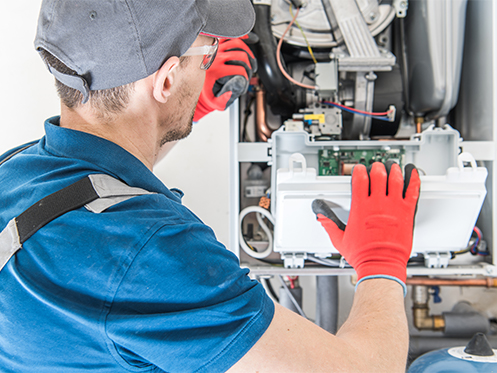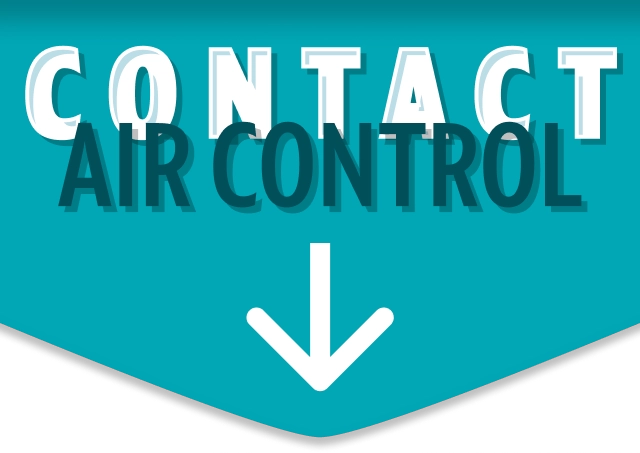When winter arrives in Mohave County, having a functioning furnace is not just a luxury – it’s a necessity. The chilly temperatures in the region make a reliable heating system crucial for comfort and safety. However, like any other appliance, furnaces can develop problems and require repairs. If you’re wondering about the cost of furnace repairs in Mohave County, it can be in the thousands.
To explain the cost range, in this blog, we’ll explore:
- Factors that affect furnace repair costs
- Common furnace repairs and their costs
- The importance of timely furnace repairs
- The importance of choosing a trustworthy contractor
With some helpful guidance, you can budget accordingly and (hopefully!) prevent common furnace issues from occurring in the future.
Factors That Affect Furnace Repair Costs
Furnace repair costs can vary widely depending on several factors. Understanding these factors can help you better estimate the potential cost of getting your heating system up and running again.
Gas Vs. Electric Furnace
The type of furnace you have can significantly impact repair costs. Gas furnaces are generally more common in Mohave County due to their efficiency and cost-effectiveness, but they can be more expensive to repair compared to electric furnaces. For example, gas furnaces tend to have more complex components, including gas valves, burners, and heat exchangers, which may require specialized knowledge to repair.
Additionally, because gas furnaces operate with gas that naturally contracts and expands, gas furnaces are prone to certain issues that electric furnaces don’t experience.
Age of Furnace
Older furnaces tend to be more prone to breakdowns and may require more extensive repairs. Newer, well-maintained furnaces typically have lower repair costs. They’re also more likely to still be covered under warranty, which can amount to huge out-of-pocket savings for homeowners.
Extent of Damage
The severity of the issue with your furnace will directly affect the repair cost. Minor issues, such as a faulty thermostat or clogged air filter, can be relatively inexpensive to fix. On the other hand, major problems like a malfunctioning heat exchanger can be substantially more costly.
In general, furnaces that have been regularly maintained are less likely to experience major breakdowns, as your technician will have a chance to spot wear and tear before it becomes a significant problem. For this reason, investing in routine furnace maintenance can help reduce the frequency and cost of repairs.
Parts and Labor
The type and brand of parts needed and their availability can affect the overall cost of your furnace repairs. Additionally, the labor costs will vary from company to company. Highly trained technicians, like those at Air Control Home Services, may charge more for their expertise, but they can often diagnose and fix issues more efficiently, saving you both time and money. They also provide peace of mind that your furnace is fixed correctly, which is priceless for many people!
Common Furnace Repairs and Their Costs
Let’s take a look at some common furnace repairs and their estimated costs:
- Thermostat Replacement: If your furnace is not responding to temperature adjustments, it could be a faulty thermostat. Replacing a thermostat can cost between $100 and $300, including parts and labor.
- Igniter Replacement: Igniter issues can lead to a furnace not turning on. Replacing an igniter typically costs between $150 and $300 on average.
- Blower Motor Replacement: A malfunctioning blower motor can result in poor heat distribution. Replacing the blower motor can range from $300 to $600 on average.
- Gas Valve Replacement: If your gas furnace isn’t getting the fuel it needs, a gas valve replacement may be required, costing between $200 and $500 on average.
- Heat Exchanger Replacement: This is one of the costliest repairs and can range from $500 to $2,000 or more on average, depending on the furnace type and size.
- Air Duct Repairs: Leaky or damaged air ducts can reduce the efficiency of your furnace. Repairing or sealing air ducts can cost around $300 to $1,000 on average.
- Filter Replacement: Regularly replacing air filters is essential for your furnace’s efficiency and longevity. Filters typically cost $10 to $30 each on average.
The Importance of Timely Furnace Repairs
Timely furnace repairs are crucial for several reasons. First, a malfunctioning furnace can lead to dangerous situations, such as carbon monoxide leaks (if you have a gas furnace), resulting in carbon monoxide poisoning if not detected and repaired in time.
Moreover, a broken furnace can leave you and your family without heat during the cold winter months, leading to discomfort and health problems in severe cases. Imagine the elderly, young children, or individuals with pre-existing health conditions enduring freezing indoor temperatures due to delayed repairs. Don’t leave your household in the cold– get your furnace repaired in a timely manner.
Lastly, postponing furnace repairs often leads to costlier and more extensive issues. For example, a minor issue like a clogged air filter, if left unaddressed, can cause strain on the entire heating system, potentially resulting in the need for a full system replacement. Simply put, early maintenance and repairs will prevent such costly outcomes and help safeguard comfort.
The Importance of Choosing a Trustworthy HVAC Contractor
A reliable contractor has the expertise and experience to accurately diagnose and address the issue. Furnace systems are complex, and a misdiagnosis can lead to costly and unnecessary repairs or even compromise safety. Trustworthy contractors will prioritize safety and adhere to industry standards, ensuring the repair work is conducted with the utmost precision and care.
Secondly, reputable HVAC contractors are more likely to provide transparent pricing and honest recommendations. With a dependable contractor, you can trust that you won’t be overcharged for services or sold unnecessary replacement parts. They will also stand behind their work with warranties, offering peace of mind that the repair will be effective and long-lasting. Finally, a trustworthy HVAC contractor will be licensed, insured, and have a solid track record of customer satisfaction, which minimizes the risk of potential disputes or unprofessional conduct during the repair process.






